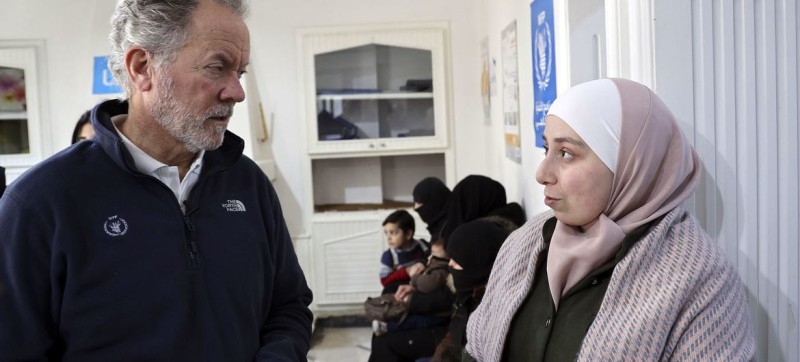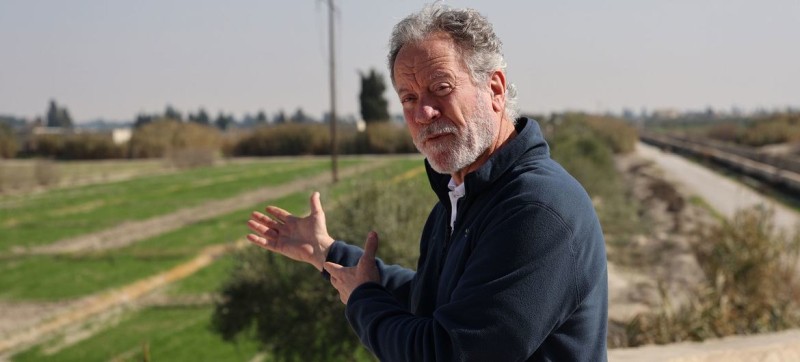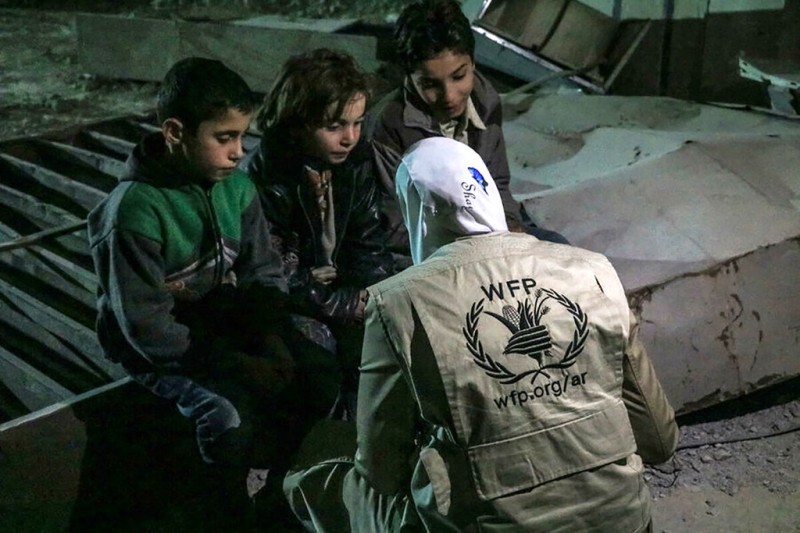
© WFP/Hussam Al Saleh David Beasley, WFP Executive Director, visits a nutrition clinics in East Ghouta, Syria.
WFP Executive Director, David Beasley, said that if we don’t address this humanitarian crisis, “things are going to get worse than we can possibly imagine”.
Following 12 years of brutal conflict, an economy crippled by runaway inflation, a currency that has collapsed to a record low and soaring food prices, 12 million people do not know where their next meal is coming from, said WFP.
A further 2.9 million people are at risk of sliding into hunger, which means 70 per cent of the population may soon be unable to put food on the table for their families.
Tweet URL
New migration wave?
“Another wave of mass migration like the one that swept across Europe in 2015 – is that what the international community wants?”, said Mr. Beasley.
“If not, we must urgently seize this opportunity to avert the looming catastrophe and work together to bring peace and stability to the Syrian people.”
The WFP chief is on his fifth trip to Syria during his time in charge, and visited Al Nashabiyah subdistrict in Duma in East Ghouta, Rural Damascus.
Once known as the breadbasket for Damascus, East Ghouta and its fruit orchards were heavily bombarded between 2013 and 2018 and its residents largely displaced. During this period, WFP was only able to reach the area through three interagency convoys.
Self-reliance: the key
Since then, the agency’s started to help farmers and the community by fixing some of the irrigation canals that were destroyed during the conflict to help them grow wheat and other food so that they can feed themselves once more.
“WFP is working to irrigate nearly 28,000 hectares of land across the country, enough to feed 620,000 people here. That means less hunger, more economic opportunity, and a stronger local economy”, said Mr. Beasley.
“The $14 million investment will save $50 million per year in humanitarian assistance, and create nearly 90,000 jobs,” he added. “In a nation where around 85 per cent of WFP’s spend goes on humanitarian food assistance, that’s a huge saving. But we need to scale up these investments to boost the resilience of other food-insecure communities across Syria.”
Green shoots return
The veteran of US politics who leaves his job at the helm of WFP in a few weeks’ time, heard first hand from farmers who have started to grow food again, after WFP helped restore the irrigation systems, according to a press release.
They appealed to him for help to get more water so they can jump-start the agriculture work in the area again and produce much needed local food for their villages and surrounding areas.
Food prices have increased nearly twelve-fold over the last three years, WFP said.
Syria now has the sixth highest number of food insecure people in the world, with 2.5 million who are severely food insecure, and their lives are at risk without food assistance.

© WFP/Hussam Al Saleh David Beasley, WFP Executive Director, visits farming and agriculture projects in East Ghouta, Syria, to help families grow their own food and get off food assistance.
Malnutrition rate soaring
Child and maternal malnutrition are increasing at a speed never seen before, the agency alerted, not even during the nearly 12 years of civil war.
WFP is now providing monthly assistance for nearly seven million people across Syria, where pockets of opposition to the Government in Damascus continue to resist, in the battle-scarred northwest.
This includes food ration distributions, prevention and treatment of acute malnutrition, school meals, cash-based transfers and support for livelihoods, resilience, and social safety nets, said WFP.

© WFP/Hussam Al Saleh WFP Staff speaks with children in Eastern Ghouta, Syria, where cases of severe malnutrition and mortality have been reported and some households having resorted to rotating meals amongst family members.

